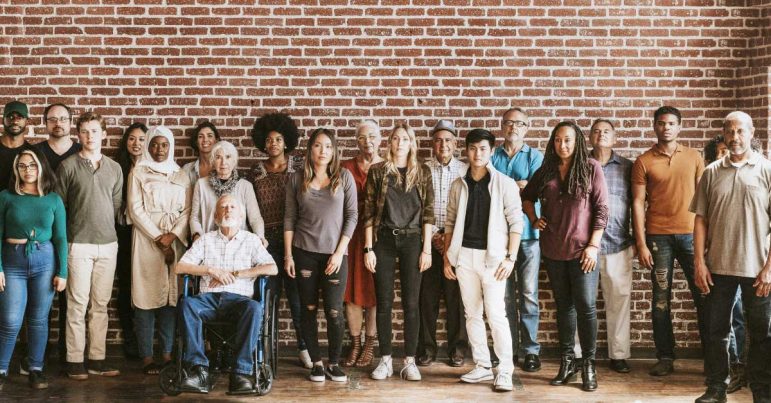New rankings identify the most and least racially inclusive U.S. hospitals. Sometimes they are just blocks apart.
BROOKLINE, Mass. — Some of the most and least racially inclusive U.S. hospitals are located in the same cities, according to a new ranking of over 3,200 hospitals from the Lown Institute, a health care think tank.
The Institute finds some hospitals in urban markets serve a whiter, wealthier patient mix, while others predominately serve patients of color and with lower incomes. In the top 50 most inclusive hospitals, people of color made up 61 percent of patients on average, compared to 17 percent at the bottom 50 hospitals.
“The difference between the most and least inclusive hospitals is stark, especially when they are blocks away from each other,” said Vikas Saini, MD, president of the Lown Institute. “As the nation reckons with racial injustice, we cannot overlook our health system. Hospital leaders have a responsibility to better serve people of color and create a more equitable future.”
The following cities had some of the most segregated systems, with a high proportion of hospitals at the ends of the inclusivity rankings:
| Least Inclusive Hospitals | Most Inclusive Hospitals | Total Hospitals | Percent Hospitals Most/Least Inclusive | |
|---|---|---|---|---|
| Atlanta | 22 | 6 | 48 | 58% |
| Baltimore | 9 | 2 | 21 | 52% |
| Chicago | 8 | 9 | 25 | 68% |
| Cleveland | 8 | 4 | 23 | 52% |
| Detroit | 5 | 3 | 12 | 67% |
| Los Angeles | 22 | 14 | 64 | 56% |
| Manhattan | 11 | 5 | 22 | 73% |
| Newark | 4 | 5 | 12 | 75% |
| Philadelphia | 19 | 6 | 32 | 78% |
| Washington, DC | 5 | 5 | 19 | 53% |
Some of these disparities were magnified during the pandemic. “If you want to see structural racism, just look at big city hospitals during COVID,” Dr. Saini said. “Hospitals with a history of serving communities of color needed refrigerator trucks to hold bodies of deceased patients, while wealthier hospitals nearby had empty beds.”
Based on the analysis, the most racially inclusive U.S. hospitals are:
- Metropolitan Hospital Center, New York, NY
- Boston Medical Center, Boston, MA
- St. Charles Madras, Madras, OR
- Newark Beth Israel Medical Center, Newark, NJ
- Little Colorado Medical Center, Winslow, AZ
- Presbyterian Española Hospital, Española, NM
- John H. Stroger, Jr. Hospital, Chicago, IL
- Harlem Hospital Center, New York, NY
- Sanford Chamberlain Medical Center, Chamberlain, SD
- Lincoln Medical & Mental Health Center, Bronx, NY
America’s most racially inclusive hospital, Metropolitan Hospital Center, is just a short cab ride from one of America’s least racially inclusive hospitals, Lenox Hill, in New York City’s Upper East Side. Though they are close neighbors, Metropolitan serves 77 percent people of color while Lenox Hill serves 33 percent.
Only three hospitals from the U.S. News Honor Roll made the top 200: Barnes-Jewish Hospital (144), Cleveland Clinic (159), and Rush University Medical Center (178).
To create the rankings, the Lown Institute assessed how well the demographics of a hospital’s Medicare patients matched the demographics of the hospital’s surrounding communities. Hospitals underserving communities of color got lower rankings.
Additional ranking information, including an explanation of methods, is available at LownHospitalsIndex.org/inclusivity. A launch of the full 2021 Lown Institute Hospitals Index, including rankings across more than 50 metrics, will take place at the end of June.
###
ABOUT THE LOWN INSTITUTE: Founded in 1973 by Nobel Peace Prize winner Bernard Lown, MD, developer of the defibrillator and cardioverter, the Lown Institute believes that a radically better system of health is possible and generates bold ideas towards that goal. The Lown Hospitals Index, a signature project of the Institute, is the first ranking to assess the social responsibility of U.S. hospitals by applying measures never used before like racial inclusivity, avoidance of overuse, and pay equity.
CONTACT
Tiffanie Thomas, tthomas@messagepartnerspr.com or (703) 400-0459
Aaron Toleos, VP Communications, atoleos@lowninstitute.org or (978) 821-4620
